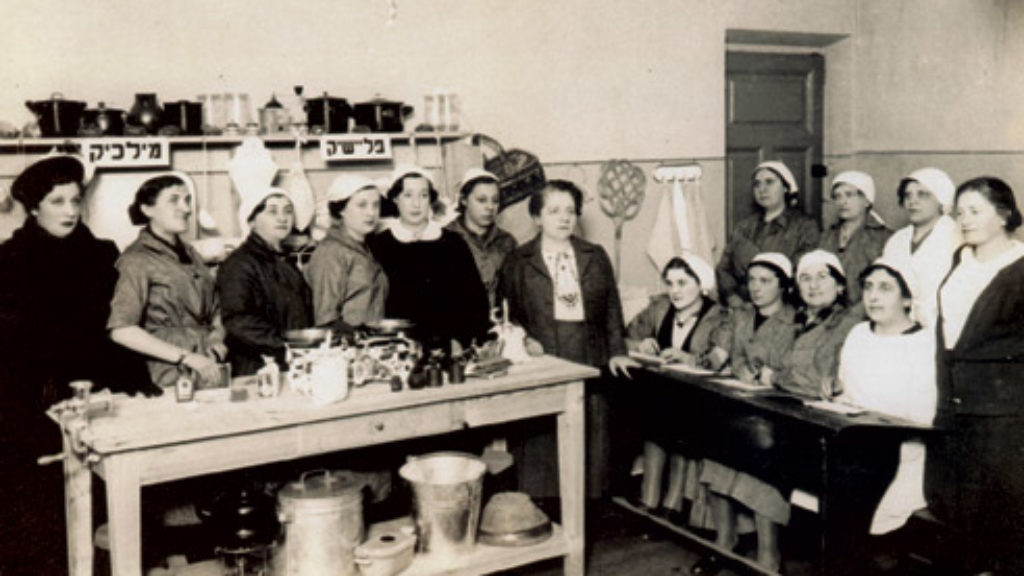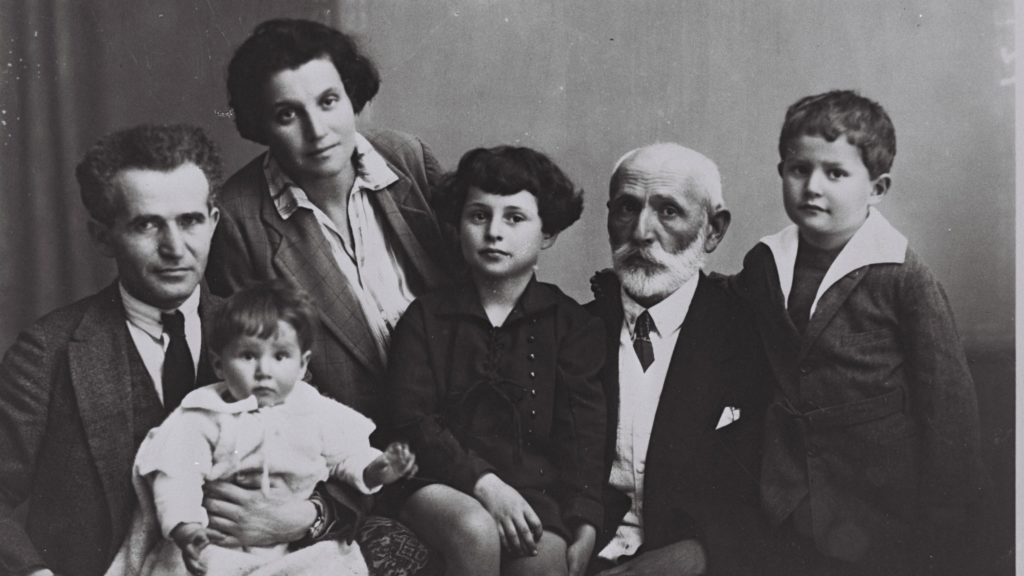Looking Backward and Forward
Allan Arkush’s intelligent dissent from an essay that I wrote some 20 years ago on Jews and America as a melting pot provides a welcome invitation to revisit that essay. The essay is based on the work of two early 20th-century authors, Israel Zangwill and Horace Kallen, who used the Jews as parade cases, the first to promote America as melting pot, the second to argue for cultural pluralism based on ethnicity. Both Zangwill and Kallen, despite their opposing positions, viewed Jews as a paradigmatic minority.
In the late 20th century, I argued, Jews no longer had this status. As Jews have “become white,” the problem of minorities in America is no longer a Jewish issue. And, yet, Jews continue to see themselves as a minority, albeit a minority that is now largely counted as part of the European/white majority. I suggested that even if Jews are no longer a paradigmatic minority, they still might have a role to play in defining a “postethnic America”—one where the very categories of majority and minority come into question. All Jews now, whether born Jewish or not, are “Jews by choice.” Identity in America might be conceived not as something essential and static but as something adaptable and adoptable.
Moreover, the rise of intermarriage (I had quoted a figure of 30 percent in the late 1990s, but it’s around 70 percent now) might be seen not only negatively. Intermarriage in the postethnic age doesn’t so much “melt” identities into something new, as Zangwill thought, but instead allows for a multiplicity of identities (Chinese and American, Jewish and Italian, etc.—even perhaps Jewish and Christian). This is something entirely new in Jewish history that requires a new analysis.
Arkush points out that such numerous identities mean that each one is drastically attenuated. If one is both Jewish and Christian, then one is probably mostly neither. Arkush instead finds that only among the Orthodox is a profound Jewish identity cultivated and perpetuated. In his view, secular Jewish culture—to which he and I belong—will persist only in the short term.
Looking back at my essay 20 years later, I do not dispute Arkush’s pessimism. Indeed, as he notes, I never claimed certainty about the future of multitudinous identities. However, the contemporary scene is witness to some features not evident two decades ago. First, there is a significant backlash against the pronatalist arguments of (mostly) male Jewish demographers. To dictate the virtues of Jewish in-marriage is seen by many as profoundly misogynist, since dictating to Jewish women with whom they should partner is entirely out of step with modern cultural mores. An open society has bequeathed great benefits to Jews, and if the price is out-marriage, then most Jews are prepared to pay it. This is a descriptive rather than a prescriptive argument. In fact, prescription is precisely the problem.
But intermarriage also has virtues in its own right. True, the number of once-Jewish partners and their children who no longer identify as Jews almost certainly exceeds the number of those non-Jewish partners and their children who take on a Jewish identity. On the other hand, there is something to be said for the transformation of the Jewish “gene pool” into something more diverse than its Ashkenazi roots. Furthermore, the high rate of intermarriage means that Jews are increasingly part of Gentile families in a way that promotes integration. (That the Clinton and Trump families each have proudly identified Jewish members is something inconceivable to an earlier generation.)
Turning to the question of non-Orthodox or secular Jewish culture, Arkush falls into the trap of defining an authentic culture as one that involves total immersion. Thus, it is no surprise that he finds it only among the Orthodox. But those who define their Jewishness differently and not according to such a self-referential standard deserve to have their choices taken seriously.
It also seems to me that Arkush does a disservice to our profession, the teaching of Jewish studies. While those of us in the guild find a positive identity in what we study, the real question is our impact on our students. When Arkush and I started our careers, there were only a handful of universities (outside of rabbinical seminaries) that offered robust programs in Jewish studies. Today, there are literally hundreds, many with endowed chairs that will have to be filled by specialists in the field in perpetuity. We collectively teach tens of thousands of students every year, Jewish and non-Jewish. Regardless of our own personal religious commitments, we are transmitting a broadly defined Jewish culture to these students. We do not yet know what the impact is of this remarkable florescence of our discipline, but it should not be gainsaid.
Another issue that surprisingly receives no mention in Arkush’s piece is the state of Israel. For both Arkush and myself, Israel provided the essential path to a secular Jewish identity, through the Hebrew language and Zionism as a movement of rebellion against an ossified American Judaism. Today, Israel no longer serves this function. To be sure, hundreds of thousands of young Jews have visited Israel through Birthright, but it is precisely the superficiality of those visits that means that, except for a tiny minority, it will play a vanishing role in their lives in America (or elsewhere in the diaspora). For many American Jews, Israel no longer represents a utopian ideal but instead a state aligned with Christian fundamentalists and Trumpian ethno-nationalists.
However, Israel and American Jewry may not be as bifurcated as it seems from this analysis. Since the 1990s, a significant segment of Israeli society has become globalized, speaking fluent English, at home anywhere in the Western world, and in favor of a secular, multicultural Israel. These Israelis are out of power politically, but they represent the dynamic “start-up nation” that rejects ethno-nationalism. They come as close to resembling their American Jewish counterparts as any Israelis have since the founding of the state. Whether these Israelis and secular American Jews can forge an alliance to guarantee the future of both remains to be seen.
Indeed, the election of Donald Trump may be creating a new dynamic for American Jews. For the 75 percent who did not vote for him, the commonly accepted identification between liberal Judaism and social justice has now acquired new urgency. Many Jews are now reconnecting with their history as a paradigmatic minority, the progeny of refugees and immigrants who can identify with and fight for other refugees and immigrants. And, so, if the mobilization of civil society to defend democratic institutions is tied to liberal Jewish values, it may be too soon to write off non-Orthodox American Jews as headed for the museum.
Looking for the other items in this symposium? We recommend you begin with Allan Arkush’s cover article, “In the Melting Pot.” Then, look at responses from:
- Jack Wertheimer, whose new book is the occasion for Arkush’s piece
- Edieal Pinker, who weighs in with a new statistical analysis
- Erica Brown, who speaks movingly about the charred remains of Jewish culture that cling to the bottom of the American melting pot
Finally, Allan Arkush responded to his critics.
Comments
You must log in to comment Log In
Suggested Reading

Vegetarian in Vilna
The long, brutal winters and meaty cuisine of Eastern Europe don’t immediately make one think of garden-fresh vegetarian recipes.
It’s Complicated
Isaiah Berlin's influential liberalism is partly explained by his Zionism.

The Statesman
Israel's president writes a biography of that country's first prime minister.
Vive la Differénce! A Rejoinder to Joshua Holo
The final installment in an exchange between Elli Fischer and Joshua Holo about Michael Chabon's controversial commencement address at Hebrew Union College-Jewish Institute of Religion.

davidberd
I am a 73 year old committed (Conservative) Jew. I think that Arkush and Wertheimer have it right. By the end of my life, and I expect to live to 120, the only viable Jewish community in America will be the Orthodox. So we will shrink to about 1 million serious American Jews. The rest will be Jew-Christian-atheists, some of whom will be faking Judaism by grasping onto the once sacred, but now pernicious, idea of Tikkun Olam.
However, a miracle is always possible to those few with a God- centered view of the universe: the Messiah may come and save us. I take the risk of shocking your readership by suggesting that the Messiah will be a conservative Republican. Even worse, he may be Donald Trump. By the election of 2020 one-third of Jews will vote for Trump. He and his followers see an America where religious liberty has been restored and where a Judaism that is defined by adherence to left wing causes will be discreditd. I pray for that day
ezuesse
Pathetic. Biale finds intermarriage good for Jews and Jewish survival, Jewish Studies as taught by culture-relativist, historicistic, secularist people like himself a beacon of hope for Jewish youth almost entirely unacquainted with in-depth Judaism, pushes the false leftist narrative of "tikkun olam" which ignores the actual traditional meaning relating to doing the commandments, and just to make himself perfectly clear, he throws in some tell-tale political advocacies. These include an insulting reference to Donald Trump. Clearly, Biale votes Democratic and identifies Jewishness especially with that. We even have some blatantly leftist statements about "refugees and immigrants" who, from Muslim countries anyway, are overwhelmingly antisemitic with a vengeance. In Europe they have already contributed to an increasingly antisemitic cultural climate. Their youth are now flooding our universities and making things difficult both for Jewish students and Jewish faculty, David, but perhaps you have not noticed. Have a look at the party you favor, David, its unfortunately increasingly anti-Jewish and anti-Israel orientation. This is in sharp contrast to the strongly pro-Jewish, pro-Israel Trump and Republican Party generally. In such comments you reveal the self-destructive counter-factual nature of your position.